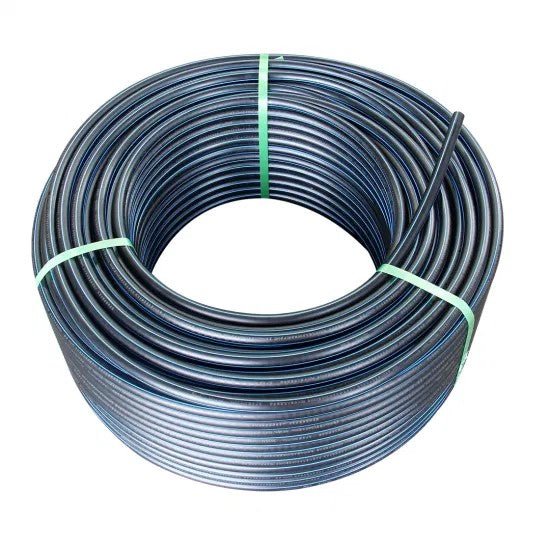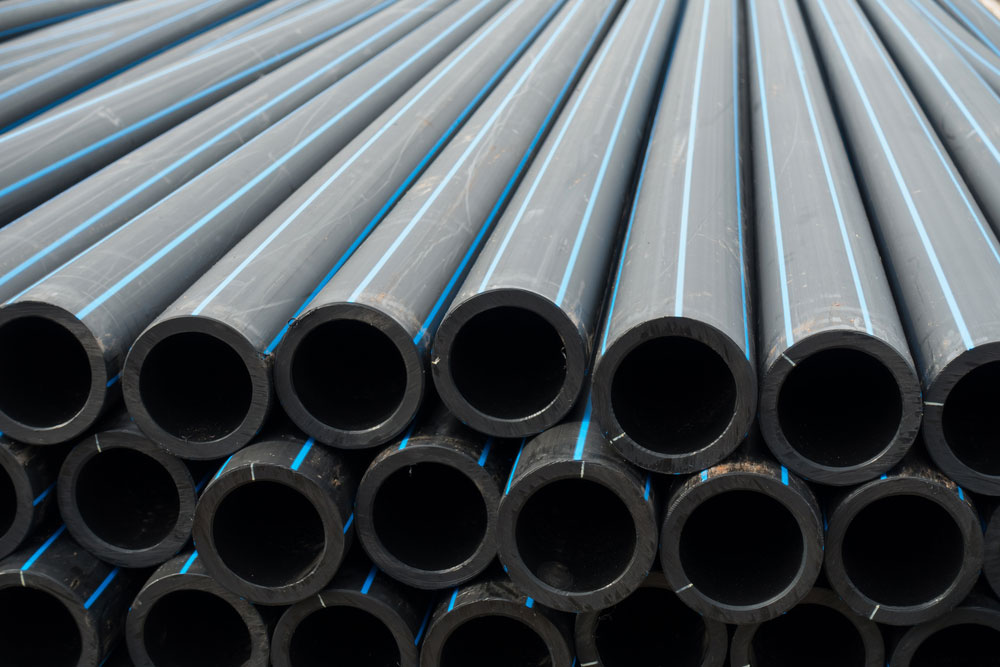Why Builders Prefer hdpe pipe in stock Midland TX for On-Site Efficiency
Recognizing the Key Perks of HDPE Pipe for Water and Wastewater Administration
Using HDPE pipeline in water and wastewater administration presents many advantages that warrant factor to consider. Its remarkable toughness and long life expectancy make it a preferred option for numerous tasks. In addition, the material's resistance to rust and chemical damages boosts its dependability in numerous settings. The advantages prolong past just long life and resistance. Texas hdpe pipe manufacturer. Discovering its cost-effectiveness and environmental effect exposes much more engaging factors for its extensive adoption in modern-day facilities
Phenomenal Resilience and Long Life

HDPE pipe stands apart for its exceptional longevity and long life, making it a favored option in water administration systems. Created from high-density polyethylene, these pipelines can stand up to significant pressure and stress, making sure trusted efficiency in time. Their robust nature enables them to sustain severe ecological problems, including temperature changes and soil movements, which can trigger other products to stop working.
The life expectancy of HDPE pipes commonly surpasses 50 years, offering a cost-effective remedy for districts and industries alike. Furthermore, the material's light-weight homes simplify installment, lowering labor prices and timeframes. This resilience decreases the requirement for frequent repairs or replacements, even more enhancing its financial charm.
In water management applications, the reliability of HDPE pipes suggests less disruptions and boosted service continuity, making them integral to sustainable infrastructure advancement. The combination of durability and durability strengthens HDPE's duty as a cornerstone in effective water administration solutions.

Resistance to Corrosion and Chemical Damage
While lots of materials catch rust and chemical damage gradually, HDPE pipelines show impressive resistance, making them excellent for various water administration applications. This resilience comes from the molecular framework of high-density polyethylene, which is inherently non-reactive and does not rust like metals or deteriorate from exposure to harsh chemicals. Consequently, HDPE is very efficient in environments with hostile substances, such as wastewater systems that may contain acids, bases, and organic solvents.
Furthermore, HDPE pipes can withstand environmental factors such as dirt acidity and saline conditions, even more improving their viability for diverse applications (Pipe Supplier American Plastics Midland). Their ability to maintain structural integrity with time minimizes the threat of leaks and failures, which is vital in ensuring the safety and security and integrity of water circulation and wastewater monitoring systems. Subsequently, the resistance to rust and chemical damage significantly adds to the total performance and longevity of HDPE piping services
Cost-Effectiveness and Economic Benefits
When taking into consideration the financial ramifications of water monitoring systems, the cost-effectiveness of HDPE pipes ends up being evident. These pipelines use lower installation and upkeep costs contrasted to conventional materials like steel or site link concrete. Their lightweight nature simplifies transportation and installation, leading to minimized labor expenses. In addition, HDPE pipes display a lengthy lifespan, often exceeding 50 years, which converts to less replacements and long-lasting savings.
The resistance of HDPE to deterioration and chemical damage decreases the requirement for costly repair services and replacements. The pipes additionally support effective water circulation, decreasing power costs related to pumping systems. By alleviating leaks and water loss, HDPE pipelines contribute to significant economic benefits for districts and industries alike. Generally, the preliminary financial investment in HDPE piping can produce considerable economic returns over the life expectancy of the water monitoring system, making it a prudent option for lasting facilities advancement.
Environmental Sustainability and Reduced Impact

Convenience and Adaptability in Setup
Due to the fact that of their distinct residential or commercial properties, HDPE pipelines provide exceptional adaptability and versatility in installment, making them ideal for a variety of applications. Their lightweight nature allows for much easier handling and transport, lowering labor prices and installation time. HDPE pipes can be curved and formed to fit various terrains and task needs, which is specifically helpful in challenging environments.
In addition, their resistance to corrosion and chemical damages permits installation in diverse setups without the requirement for specialized protective finishes. The capacity to fuse joints produces a constant, leak-free system, enhancing the overall honesty and dependability of the installation. HDPE's flexibility also accommodates ground activity, reducing the threat of damages in areas prone to moving soil. Overall, these attributes make HDPE pipes not just versatile yet additionally a recommended option for water and wastewater monitoring systems.
Frequently Asked Questions
Just How Does HDPE Pipeline Contrast to PVC in Water Administration Applications?
HDPE pipeline provides remarkable versatility, resistance to deterioration, and sturdiness compared to PVC. Its pvc fittings lighter weight promotes less complicated installation, while its lengthy life expectancy lowers substitute costs, making HDPE a recommended selection in water administration applications.
What Is the Lifespan of HDPE Pipes Under Regular Conditions?
Under common problems, HDPE pipes can have a life-span ranging from 50 to 100 years. Their sturdiness and resistance to rust add to their long-lasting performance in various applications, making them a dependable selection for framework.
Are HDPE Piping Recyclable After Their Solution Life?
Yes, HDPE pipes are recyclable after their service life. Pipe Manufacturing Midland TX. They can be refined and repurposed right into new products, considerably reducing ecological impact and advertising sustainability within the market, making them an environmentally friendly option for piping remedies
What Is the Installment Process for HDPE Pipeline?
The installation procedure for HDPE pipes includes site prep work, trenching, pipeline blend or mechanical joining, backfilling, and pressure screening. Proper strategies ensure a durable and efficient system for moving water and wastewater effectively.
Can HDPE Water Lines Be Used for Both Drinkable and Non-Potable Water Solutions?
Yes, HDPE pipes can be utilized for both potable and non-potable water systems. Their convenience, durability, and resistance to corrosion make them ideal for different applications, guaranteeing secure and effective transport of water in various contexts.